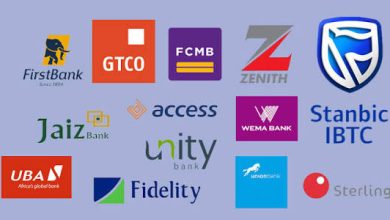Legal and Regulatory Trends Affecting Fintech in 2025
Key regulatory shifts every Nigerian fintech entrepreneur should watch in 2025

Fintech is not a subplot of Nigeria’s economy anymore, it’s at the center of how people pay, borrow, save, and invest. From sending money with an app to borrowing money online in a rush, technology has changed money. But with rapid growth comes scrutiny, and regulators are taking a closer look than ever.
In 2025, the rules of the game are shifting. For founders, investors, and even customers, readiness to adapt is no longer optional. The question is: what are the trends business owners should watch closely?
Trend 1: More stringent KYC and AML Requirements
If you’ve opened a fintech account recently, you’ll know the process isn’t as quick as it used to be. That’s because regulators are raising the bar on Know Your Customer (KYC) and Anti-Money Laundering (AML) checks.
Those days are over when you needed only a phone number and BVN. Most apps now demand biometric verification, live photo scanning, or even several ID uploads. For small startups, it feels like friction. But without them, platforms become easy targets for money laundering and fraud.
Consider the case of a lending app that skips proper checks to rush customers into enrollment. One instance of fraud can lead to fines or suspension by the CBN. Compare this to companies which are committed to compliance and the message they convey: “We can be trusted with your money.”
Trend 2: Tighter Regulations on Digital Lending
Nigeria’s online lending industry grew fast but with drama in tow. Some apps became infamous for stalking borrowers, publicly shaming them on social media, and misusing personal data.
Those times are behind us. The FCCPC (Federal Competition and Consumer Protection Commission) now requires digital lenders to register and adhere to strict codes of practice. Abusive debt recovery tactics are giving way to regulated procedures.
For business executives, that means expansion must be linked to accountability. Lending is not simply exporting money, it’s about protecting borrower rights and being honest with fees and interest rates. A lender who gets the balance right wins repeat business; one who fails risks closure.
Trend 3: Open Banking Is Here
One of the most exciting experiences in 2025 is the roll-out of Nigeria’s open banking. For the first time, banks and fintechs can exchange customer data (with customer permission) securely through standardized APIs.
How does that play out in real life? A personal budgeting app that uses real-time data from your bank account in order to monitor expenditure. Or a small business program that directly integrates with a bank to speed up loan approvals.
This is a huge bet on innovation, but also raises the stakes regarding data security. If customers are going to trust third-party apps with their financial information, fintechs must show that their infrastructure is secure.
Trend 4: Crypto and Virtual Assets Under Watch
Nigerian crypto has had a rollercoaster ride. From early adoption to outright banking prohibition, things have been far from stable. As of 2025, regulators are no longer burying their heads in the sand. The Securities and Exchange Commission (SEC) has launched licensing rules for virtual asset service providers.
While the Central Bank still prevents banks from directly enabling crypto transactions, the handwriting is on the wall: virtual assets are too significant to be ignored. For businesses within this space, compliance is no longer optional. Those that comply may survive the volatility, but those that fail to comply may find themselves shut out of the market.
Trend 5: Data Protection Takes Center Stage
Fintechs survive on data, but data also attracts regulation. With the Nigeria Data Protection Act (2023) fully in force, regulators are very interested in how companies reap, store, and use customer data.
This is not box-ticking. Overlooking the safeguarding of user data can cost several million naira in fines, besides eroding customer confidence. Fintechs will have to recruit data protection officers, train employees, and conduct regular audits. Customers are more aware than ever, and a single privacy infringement can push them into competitors’ hands.
Why Business Owners Should Pay Attention
Compliance is something some entrepreneurs see as a restraint. But in the real world, it is a competitive edge. An investor will be far more inclined to fund a fintech that understands the rules rather than one that is in constant conflict with regulators. Customers, similarly, will stay with platforms that treat them fairly and protect their information.
Conclusion
Nigeria’s fintech tale this year is that of pressure and potential. The industry holds great promise but is having fences erected around it to keep things in check. From stricter KYC processes to open banking and data protection, it’s a fast-changing scene.
For business owners, the most enlightened choice is to understand compliance as an investment instead of a burden. In the end, the first-mover companies will be the ones to shape the future of finance in Nigeria.




